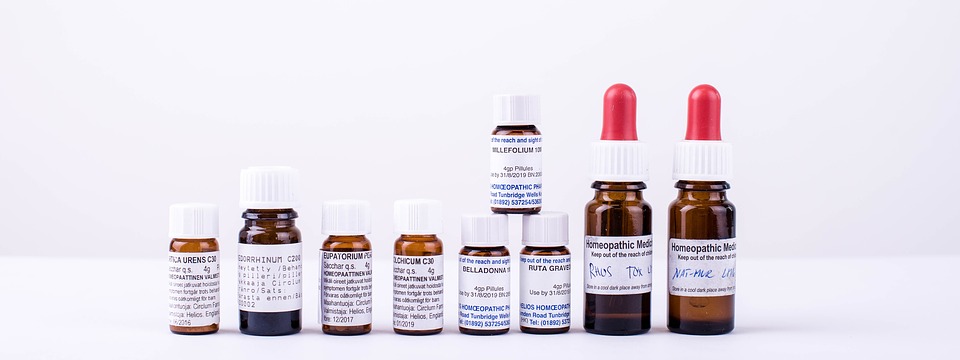This is Part 4 of my article series How I Overcame Insomnia in 10 Steps.
So far, we’ve discussed our immediate insomnia triggers, our overall mental health and mindset, and how they affect our ability to relax and sleep.
In this article, we’ll be talking about one major factor that impacts on all of those things: the media. (By this, I mean news articles, videos, stories, social media, etc.)

We are bombarded with news stories all day, every day. Whether we like it or not, these stories affect the way we view the world, as they contribute to the picture we build up in our minds about what the world is like.
Good Dog, Bad Dog
For example, if you’d only ever seen negative news stories about dangerous dogs biting children and running amok, you would begin to think that dogs are a dangerous species. However if you’d only seen lovely heartwarming stories about rescue dogs, you would have a totally different and positive view of them.
The truth is of course that there are rescue dogs and dangerous dogs, and wolves, and millions of family pets. It’s not the actual dogs that have changed, it’s just our perception of them that changes.
This is how we build our world view.
Before the media, we would have built our view of the world based on our own experiences and what we were told by family members and friends. And those experiences still form a part of our world view.
But in modern times we also have numerous other ways of building up our picture of the world, including school, university, work colleagues, books, magazines, newspapers, advertising, tv, films, the news, the internet and social media.
Messages
All of these forms of media constantly bombard us, 24 hours a day, 7 days a week, with messages about ourselves, other people, politics, our country, other countries.
Most of the messages are negative. Positive news stories do not sell as many subscriptions and get as many views as negative news stories, so most media outlets promote negative stories that elicit angry or fearful responses.
Just think what those constant anger and fear producing headlines are doing to your state of mind! You may not notice it from day to day, as we have all become so accustomed to hearing it.
Even if we don’t consciously think about these headlines and stories you can be sure that it is affecting our subconscious.
Negative Perceptions
Remember what happens when we only hear bad things about dogs? We learn to fear dogs. When we only hear bad things about the world, we learn to fear that, too.
When we are afraid or angry, our body enters a state known as “Fight or Flight”, during which we produce cortisol (the stress hormone) which raises our blood pressure and increases our heart rate.
Short term, this is beneficial because it enables us to act quickly, run away (if necesary) or boost our physical performance.
But long term, if we spend too much time in this state, we end up with health problems, high blood pressure, exhaustion, and mental health issues such as anxiety and depression.

Long term stress is a known killer, increasing our risk of heart disease, metabolic diseases such as diabetes, heart attacks and stroke.
Pros and Cons
Of course, there are also good reasons to keep up to date with the news. We need to be informed of what is going on in the world, and find out about changes that might affect us.
Especially at the moment, when Covid rules change week by week, depending on where we live, we obviously need to keep up with recent news.
Also many of us feel we should be informed of atrocities being committed elsewhere so that we can try to help in some way – donating or signing petitions, for example. Sometimes just being aware of it feels like we are helping in a way, by having empathy and raising awareness.
Unfortunately, we do all this at great cost to our physical and mental health.
Balance
Finding a balance between the pros and cons is crucial.
Designate a time of day to catch up on the news. If you find yourself scrolling through negative story after negative story, feeling more and more dejected, try limiting your news consumption to a certain period of time.

I won’t look at news first thing in the morning now, since I found it was making me feel sad or angry or depressed right at the start of my day. It was having a lasting effect on my mood, and how I interacted with people, for the rest of the day.
I also stopped reading the news in the evenings before bed, as some stories could rile me up and increase my heart rate, just when I was trying to relax and settle in for the night.
Personally, I find the best time for me to look at news is around mid afternoon. This means it does not affect my morning mood or cast a shadow over my day, and it is early enough that I can still relax afterwards in the evening.
Detach
In fact I went further than just limiting the time I spent on news and social media. I began to detach myself from it emotionally.
I learned to see the negative stories for what they really were: deliberately divisive. We all know that news outlets are biased. In the UK it is easy to identify which newspapers are left wing and which are right wing, simply by the spin they put on every news event. I am sure it’s the same all over the world.
It’s not that one publication has the “correct” view and the other is completely wrong and biased. It works both ways! Even my own preferred outlet is biased, presenting its own angle on the story, and only caters to one particular audience’s political view.
Once we realise how biased it all is, we can begin to switch off from it.
I learned to spot how the writer was trying to appeal to my own values, and manipulate me (using fear, guilt, or anger) into believing a certain viewpoint or having sympathy for certain people.
I realised I was being manipulated to not only feel positive about certain things, but also feel negative about others, and feel conflict against people with alternative viewpoints.
Politics
Many of us feel that politics is extremely important, and that we must stand up for what we believe in, to bring about justice and change. It is important! I’m certainly not denying that.
But I am asking you to question how involved you need to be. And to question what you should do in order to feel like you are making a difference.
Getting involved in online arguments on social media may make you feel like you’re doing something useful against what you perceive as a negative aspect of humanity.
But in truth, we rarely change someone else’s mind by disagreeing with them or pointing out the flaws in their arguments.
Remember, the people you’re arguing with feel just as strongly about their viewpoint as you do about yours. Are they going to change your mind? Are you really going to change theirs?
Social Media
The other major source of negativity is social media. Now you may be fortunate enough to have a selection of positive, optimistic, accepting friends and a calm, content social media feed to match.
But it is more likely that there is some negativity coming from your social media in one or more of the following forms:
- pity
- shock
- sadness
- guilt
- jealousy
- anger
- fear
If we have a lot of beautiful, successful or fortunate friends, looking through the social media window into their lives can make our own lives feel mundane, boring, depressing or worthless by comparison.

But please remember that the pictures shared on social media are only the ones that the poster feels represent them in the most flattering light. Many pictures are edited and filtered before we ever get to see them.
The stories people write about their own lives for public consumption are rarely described exactly as they happened. People often exaggerate and omit and embellish the truth.
Sometimes for attention, sometimes for pity, sometimes because they feel the pressure to make their lives look as good as the friends they see on their feed.
Take it all with a pinch of salt.
And if you find that difficult, and keep getting drawn into the jealousy and pity and negativity, consider whether it would do you more good to just delete your account altogether.
Find Other Ways
I have always prided myself on keeping up to date with politics and socially conscious conversations. I consider myself progressive and liberal. I believe in freedom of expression and fair democracy.
So I was conflicted about reducing my involvement in politics. I didn’t want to become apathetic, uncaring or pretend it didn’t matter to me. But it was affecting my mental health and I knew I had to do something about it.
I decided that instead of getting riled up by stories that were designed to upset me, I would take note of the factual elements of the story and try to ignore the manipulative emotional elements.
Another tactic I employ now is that instead of reading about things that I find sad or appalling, I choose a cause that matters to me and make a regular contribution.
For example, I kept finding myself reading heartbreaking stories about homeless people and people in abject poverty. I felt sad and distressed that these people were not being helped.
So I researched homelessness charities and decided to support a local foodbank which provides food parcels to those in need in my local area. I set up a regular monthly payment to the charity, and now I know that I am doing something tangible to help, I do not feel the need to read such articles.
(If you’d like to take action against poverty in your area, here’s a link to the Trussell Trust, which funds foodbanks to help people in need across the UK.)
Take Control
I now read the news purely to keep up with events. I read a variety of sources to try and get a balanced view of each story, and distance myself from any emotionally manipulative content.
Don’t get me wrong, I still feel emotions in response to world events and news stories. I continue to hold my political ideals and values. I continue to have compassion.
I just recognise now when I’m feeling fear, guilt or anger. I notice when I’m being manipulated. I stop, and take control of my emotional reaction, by deciding what I can actively do instead (signing a petition, donating to a cause, for example).
This allows me to rise above the negative emotions and focus my time and effort on achieving my goals instead of worrying.
Summary
- Constant negative news affects our health
- Recognise bias and manipulation in the media
- Designate what time of day you read the news
- Limit the amount of time you spend reading news
- Notice when your react emotionally to stories
- Find another way to do something about it

[…] Limit News and Social MediaFurther to addressing your mental health is taking a good look at the environment you surround […]